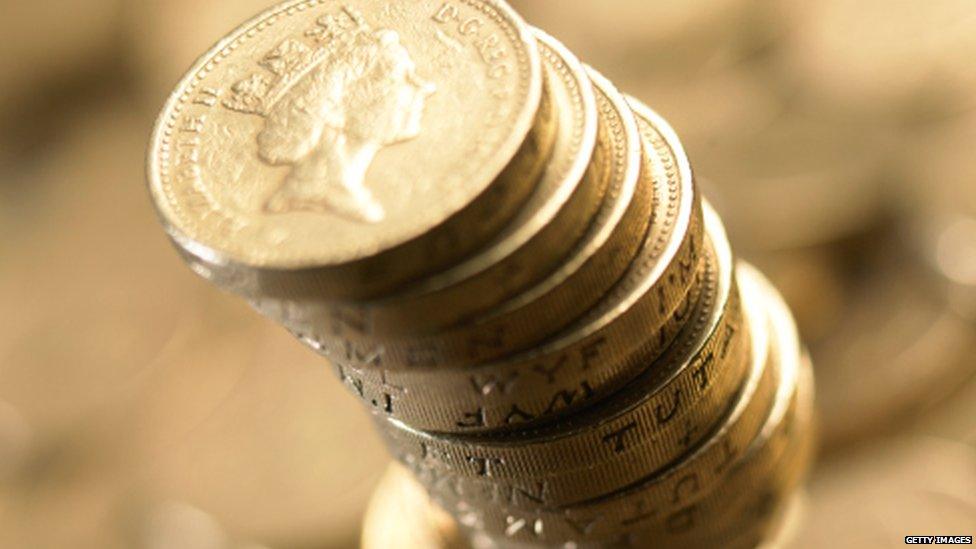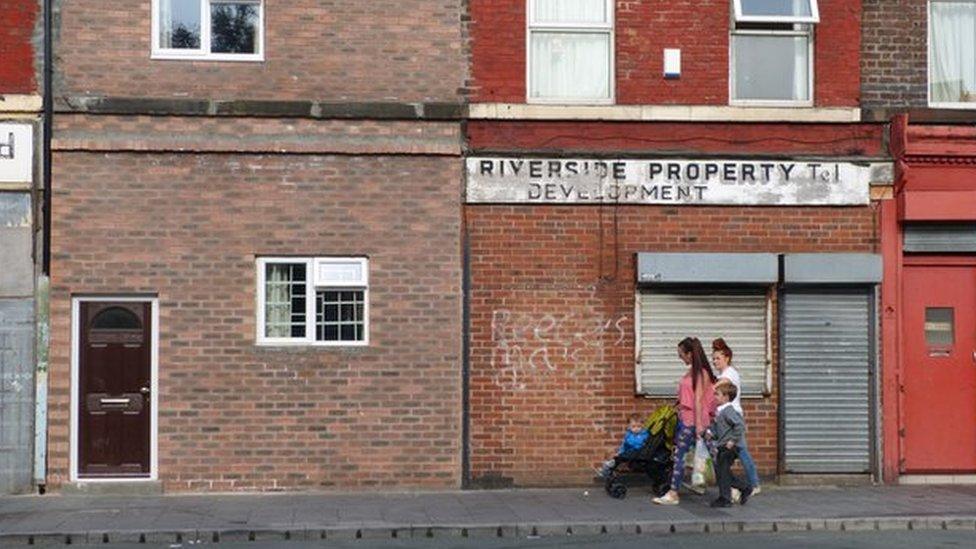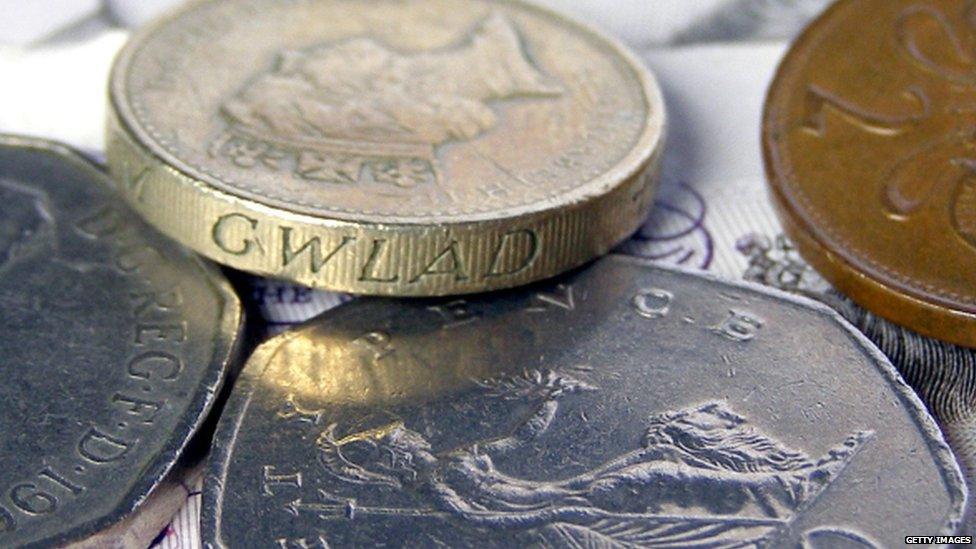The row over changes to tax credits explained
- Published

Whether you receive them or not, you may have noticed a lot of chat about tax credits recently.
Independent researchers believe three million families will be worse off under government plans to cut the benefit payments.
But ministers claim they'll be compensated by a new National Living Wage, a rise in tax-free earnings, external and more free childcare.
The government says it wants to change the confusion which sees people paying taxes and getting it back in benefits.
It also wants to make "work pay" and cut the country's welfare bill.
A growing number of its own Tory MPs aren't happy though, arguing it'll make hard-working people worse off.
What are tax credits?
Let's get any confusion out of the way early. They're not actually anything to do with paying tax. Helpful, right?
They're the benefit payments brought in by the last Labour government to help low-paid families. About four and a half million people claim them.
There are two types... Working Tax Credit, external (for those in work), and Child Tax Credit, external (you guessed it, for those with children but it's different from Child Benefit).
The average claim is £6,340 a year, but people can get more (or less), external depending on their hours, salary, how many children they have and whether they have a disability.

What's changing?
Working Tax Credits
Single people can currently claim Working Tax Credits if they earn no more than £13,253 a year, although eligibility depends on a range of personal circumstances.
The cut-off point is higher for couples and people with children.
Those who earn less than £6,421 get the maximum payment. The more you earn after that, the less you get.
But from April 2016, the government wants to cut that to £3,850 and everyone over the threshold will get less than they do now.
Child Tax Credits
At the moment, someone with one child can earn up to £25,000 and still qualify for Child Tax Credits, but the amount they get depends on family circumstances.
They could get the maximum payment if they earn £16,105 or less, but from April the government wants to cut that to £12,125.
After that point, the more people earn, the less they'll get.
Anyone who currently receives the payments gets a basic sum of £545, plus up to £2,780 per child per year (plus more for disabled children).
But from April, the government wants to scrap the basic payment, known as the "family element".
It also wants to limit the number of children people can claim for to no more than two in April 2017.

So will people be better or worse off?
Chancellor George Osborne says that anyone who is working full-time on the National Living Wage will be better off by 2017, after changes to taxes, tax credits and benefits are taken into consideration.
But most people claiming tax credits are likely to be working part-time.
Independent research from the Institute for Fiscal Studies, external (IFS) suggests families with someone in paid work will lose an average of £550 per year, factoring in all the different changes.
They say households where no-one works will be hit hardest, followed by low income families.
Researchers at the Resolution Foundation - which campaigns for low and middle-income families - thinks working mums will be worst affected because many work part-time.
It thinks one million single parents will be £1,000 a year worse off, with 1.5 million married mothers missing out on £600 a year by 2020.
Others have raised concerns about middle income families, although the Resolution Foundation thinks a middle-earning couple without children could be £350 a year better off.
A letter will go out to those affected before Christmas.
Follow @BBCNewsbeat, external on Twitter, BBCNewsbeat, external on Instagram, Radio1Newsbeat, external on YouTube and you can now follow BBC_Newsbeat on Snapchat